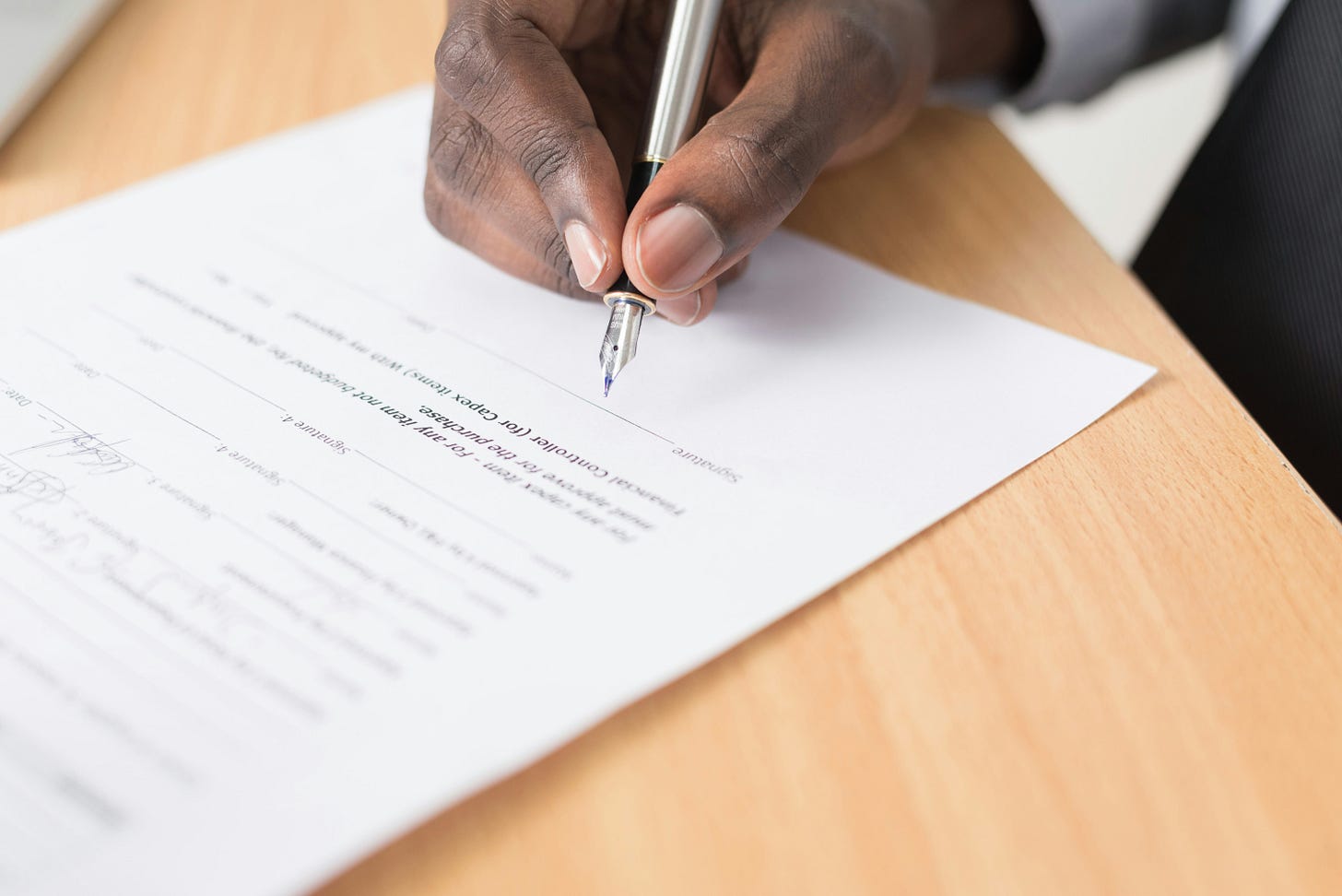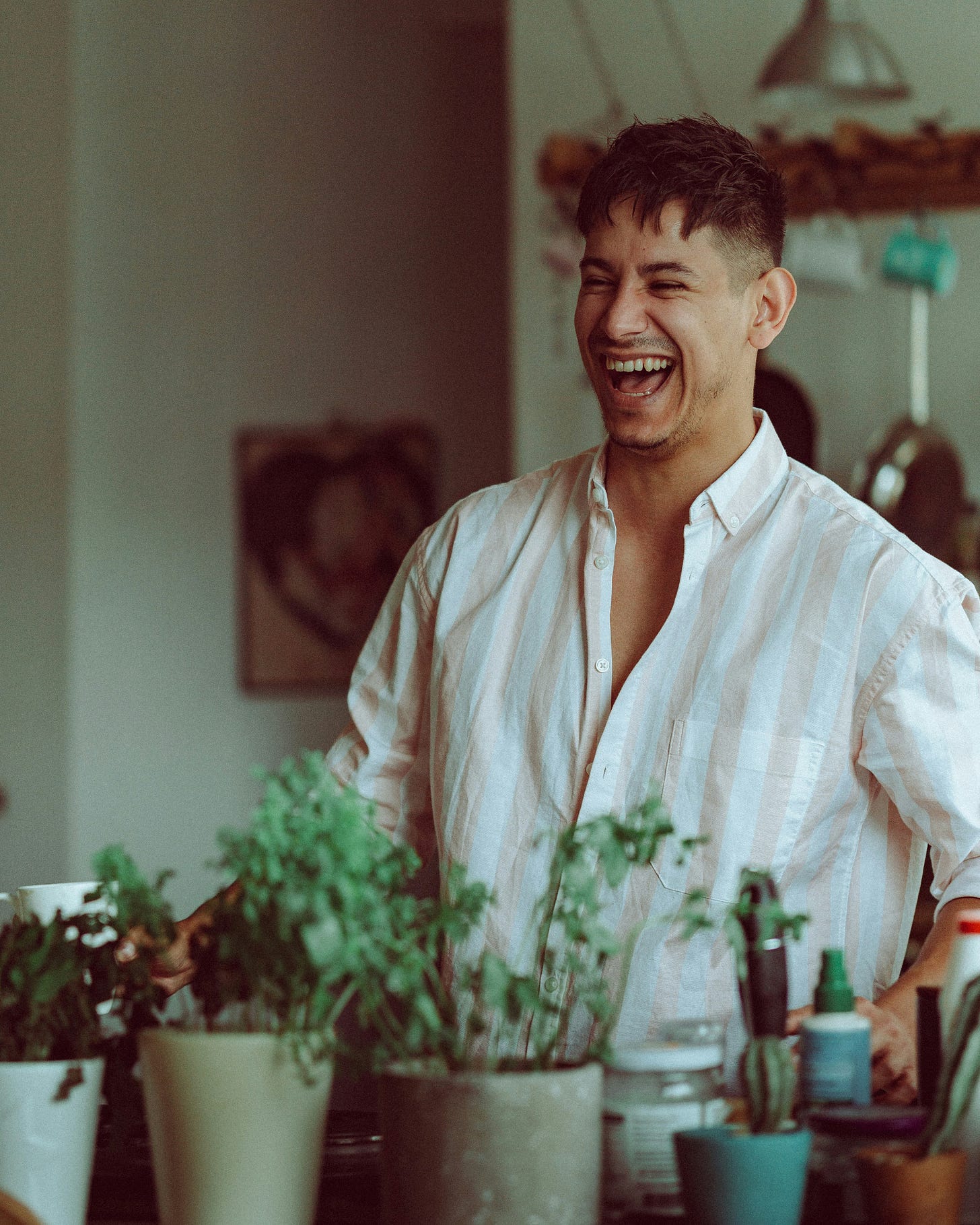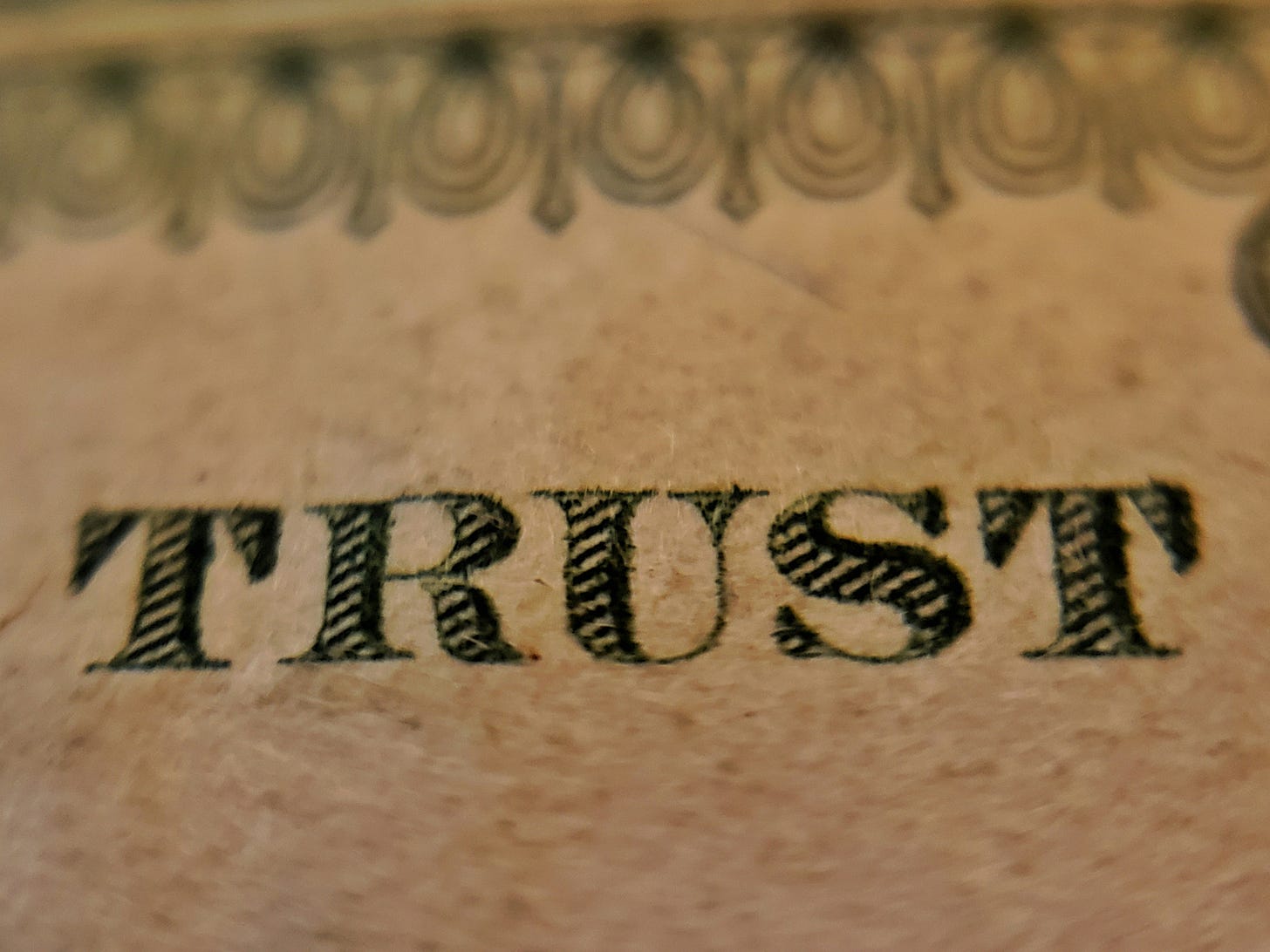
You know that deep, twisting sensation in the pit of your stomach when you're about to buy a car—whether it's brand new or used, it doesn't seem to matter. Your chest feels tight, and your palms might even start to sweat as the weight of the decision settles in. Almost immediately, you're faced with the uneasy task of trusting the salesperson, hoping they'll be honest about giving you a fair deal. And it’s not just about the price—you’re also relying on them to assure you that the car is reliable, something that will protect you and your family and provide safety for years to come.
“Trust me.” the salesperson says. “This is a great deal!”
After agreeing on the deal, you move on to the contract signing. Your stomach churns with unease, and your shoulders feel heavy with fatigue as the financial manager slides the thick packet of papers toward you. “Trust me... it’s all here. You can read it if you want to take the time, or you can just sign,” they say casually. You glance at the four-page document, and your eyes feel strained just thinking about combing through the fine print—you’ve already been here for hours, and your body is drained of energy. Summoning the last bit of strength to advocate for yourself, you say, “Please explain it to me before I sign.” Your heart beats a little faster as you wait for their response. They give a thorough explanation, your shoulders ease slightly, and, with a hesitant sigh, you pick up the pen and sign.

Even after hearing all the reassurances and signing the contract, there’s still that persistent thought lurking in the back of your mind: “What am I not seeing? What am I missing? Did they manage to slip something past me?
As you drive away, a wave of relief washes over you—"Finally, it's done!" you think, mixed with a flicker of hope that the car isn’t a lemon. You tap the dashboard and mutter, "At least I won’t have to go through that again anytime soon." Your breathing slows, your heart settles into a steadier rhythm, and the tension in your chest begins to melt away, replaced by a growing sense of calm. Yet, lingering in the back of your mind is the fragile thread of trust you extended during the process—trust that the salesperson was honest, trust that the car will keep you safe, and trust that you made the right decision. For now, you let yourself believe it, because trusting—even cautiously—offers a momentary reprieve from worry.
The rumble of your stomach interrupts your thoughts, pulling you back to the moment. You glance at the clock and realize it’s time to treat yourself. The idea of sitting down at your favorite little restaurant feels like the perfect way to unwind. Minutes later, you find yourself parked and stepping inside, the aroma of fresh herbs and warm bread wrapping around you like a comforting hug. Finally…relaxation.
The opposite is true for me. Imagine sitting this restaurant as the wait staff approaches your table to take your order. For a moment, your breath catches, your teeth clench, and the muscles in your neck and shoulders tighten instinctively.
Instead of an experience waiting to be savored, mine is often one of caution and fear. I wonder where the hidden allergen might be lurking. I question if this will be the meal that endangers my life. I wonder if the server will deserve my trust and take my allergies seriously when I share my list, or if they’ll be careless causing me to be sent to the emergency room.
I live with life threatening allergies. Trust is given freely to others daily.
"Are you ready for me to take your order?" they ask cheerfully.
I exhale slowly and reply, “First, I need to tell you about my allergens. Please write them down carefully—it’s a matter of life or death for me. Otherwise, we’ll have an ambulance here.” You've grown used to saying this, not just because it’s true, but because you need the server to understand the gravity of the situation.
“I’m allergic to nuts, sesame in any form, peas, peanuts, legumes and gluten. Do you have gluten-free pasta without pea protein?”
The server laughs raucously. “Pee? Pee in pasta?” they say with a grin.

I stiffen, forcing yourself to stay calm. “No, not P-E-E. P-E-A,” you clarify firmly, but deep down, you already know this isn’t going to end well. Resigned, you decide to sip on a glass of water while your friend enjoys their meal.
This is just one example from my life.
Trust, for me, is something I must extend daily to strangers who quite literally hold my life in their hands.
Merriam-Webster defines trust as: a charge or duty imposed in faith or confidence or as a condition of some relationship.
Ideally, trust should be earned. It is one of the core foundations of meaningful relationships—whether in family, friendship, or work. But in my reality, I am forced to place trust in strangers far more often than I would like. And too many times, more than I can count, that trust has led to harm.
One careless bite—an allergen served by a chef or server who didn’t pay attention—is all it takes for my world to spiral. The ambulance arrives for me, hooking me up to IVs, monitoring my heart, and rushing me to the emergency room. My body is left in shock, trembling from the trauma, while my mind becomes overwhelmed with fear.
The picture below is of sushi I had with family—so sometimes family can make faux pas too that threaten my safety and life.
Trust, for me, isn’t an easy concept. Time and again, those I’ve entrusted have failed me miserably. And yet, the ones who would truly deserve my trust often never get the chance.

There are only a few select places where I feel safe eating. I’m fortunate to have some incredibly loving and attentive friends who genuinely care about my well-being. Over time, I’ve learned to prioritize my safety and health over the convenience or experience of dining out. Living with severe allergies makes eating out a daunting and often terrifying experience.
These days, I choose to cook at home, savor time with friends over coffee or tea, and avoid situations where my life could be at risk. It’s a choice rooted in self-care and peace of mind, allowing me to enjoy life without the constant fear of danger.
How do you approach trust? Do you freely give it, or do you take the time to build it authentically with someone?
Think about the relationships you have now—are they ones where trust has been carefully built over time?
Can you recall a time when a relationship didn’t work out?
What role did trust, or the lack of it, play in that outcome?
I encourage you to always trust yourself and your instincts. Trust is something that begins with you as an individual and extends to your relationships with others. If something within you triggers a sense of unease—like sweaty palms or a racing heartbeat—believe it. Similarly, if those same sensations bring you joy, embrace and trust that as well. How you develop trust is just as important as who you develop it with.
For your enjoyment
Billy Joel. It’s a Matter of Trust
With much gratitude-
Chellie




So, back in the day, Chellie and I were married. I can vouch for the experiences she talks about in this piece. I can't count the number of emergency rooms I've been in with her, because of her allergic reactions. (Fortunately, most ER waiting rooms have vending machines with good junk food!) To this day, I sense her fea tor when ordering at a restaurant. Luckily, some
waiters, restaurant managers, and chefs take the allergy issue very seriously. Others, not so much. I hope this piece resonates with you, no matter what trust issues you may have
It is so hard to live with dangerous allergies. You deal with the issue very well.